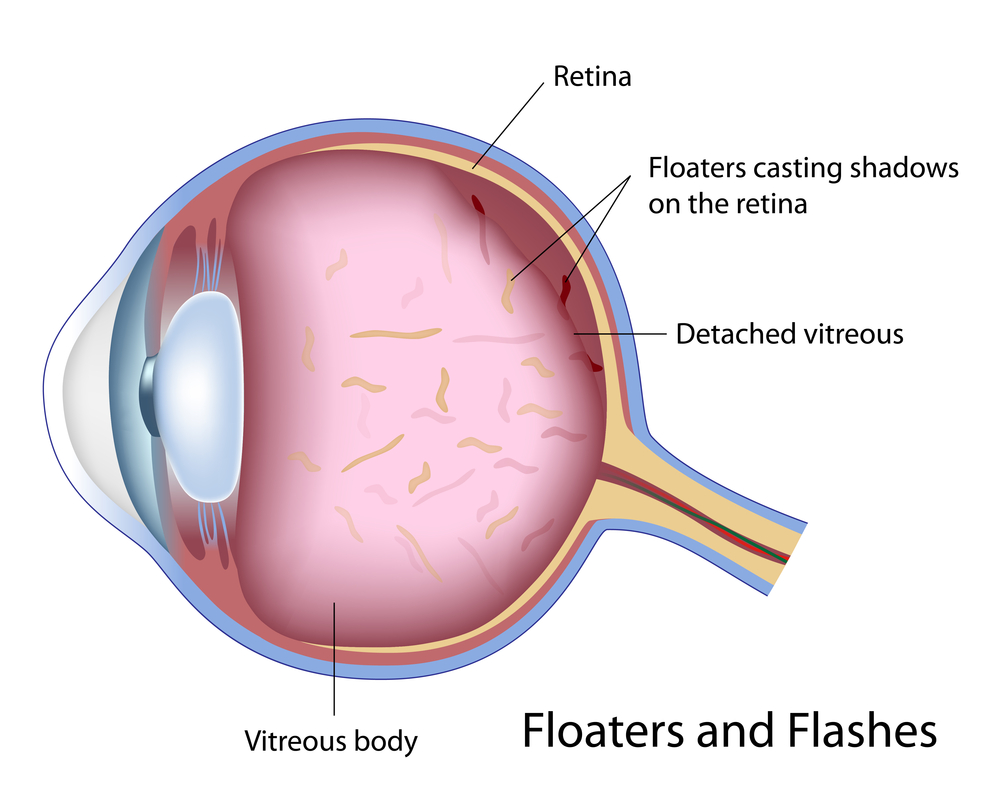Understanding Eye Floaters: Causes, Symptoms, and Treatments
This article provides a detailed overview of eye floaters, including their causes, symptoms, risk factors, and treatment options. It emphasizes when to seek medical advice and how to differentiate normal floaters from signs of serious eye conditions, offering valuable insights for maintaining eye health.

Have you heard of eye floaters? If not, this article offers a comprehensive overview of what eye floaters are, their origins, and the available treatment options.
What are eye floaters?
They appear as moving spots in your vision, resembling black or grey spots, cobwebs, or strings.
Floaters drift when you move your eyes and often seem to shift away when looked at directly.
Since they are within the eye's vitreous fluid, they move naturally with eye movements.
While they can be distracting, they typically cause no pain or discomfort.
Causes of eye floaters
Age-related changes: The vitreous gel inside the eye undergoes degeneration with age, partially liquefying and creating clumps that cast shadows, forming floaters.
Eye inflammation: Inflammatory processes behind the eye can release debris into the vitreous, resulting in floaters.
Retinal tears: The shrinking vitreous may tug on the retina, causing tears that can lead to detachment if untreated, risking permanent vision loss.
Bleeding within the eye: Conditions like diabetes or eye injuries can cause blood to leak into the eye, appearing as floaters.
Eye surgeries and medications: Post-surgical changes, such as air bubbles, or some medications can lead to floaters.
Nearsightedness: Myopic individuals are more prone to developing floaters.
Risk factors for developing eye floaters
Age over 50
Eye trauma or injury
Myopia
Post-cataract surgery complications
Eye infections or inflammation
Diabetic eye disease
Should you be worried about floaters?
Generally, eye floaters are harmless. However, seek medical attention if:
Floaters persist or worsen significantly
They suddenly increase in number
You notice flashes of light along with floaters
There’s a shadow or curtain effect in your corner vision
Experiencing eye pain or vision problems
Related eye conditions
Cataracts
Nearsightedness
Retinal detachment
Retinal necrosis
How to reduce or eliminate eye floaters
Let them be: If floaters aren't bothersome, they may fade naturally over time.
Vitrectomy: In cases where floaters impair vision, a surgical procedure can remove the vitreous humor containing the debris.
Address underlying issues: Treating conditions such as inflammation or retinal tears can help reduce floaters.
Maintain an anti-inflammatory diet: Consuming foods that reduce eye inflammation can help prevent floaters caused by inflammatory processes.
Important note:
The information shared on this site aims to inform and guide readers through various topics. It should not replace professional medical advice. Always consult an eye care specialist for diagnosis and treatment options tailored to your condition. The website cannot be held responsible for discrepancies or inaccuracies from other sources.










